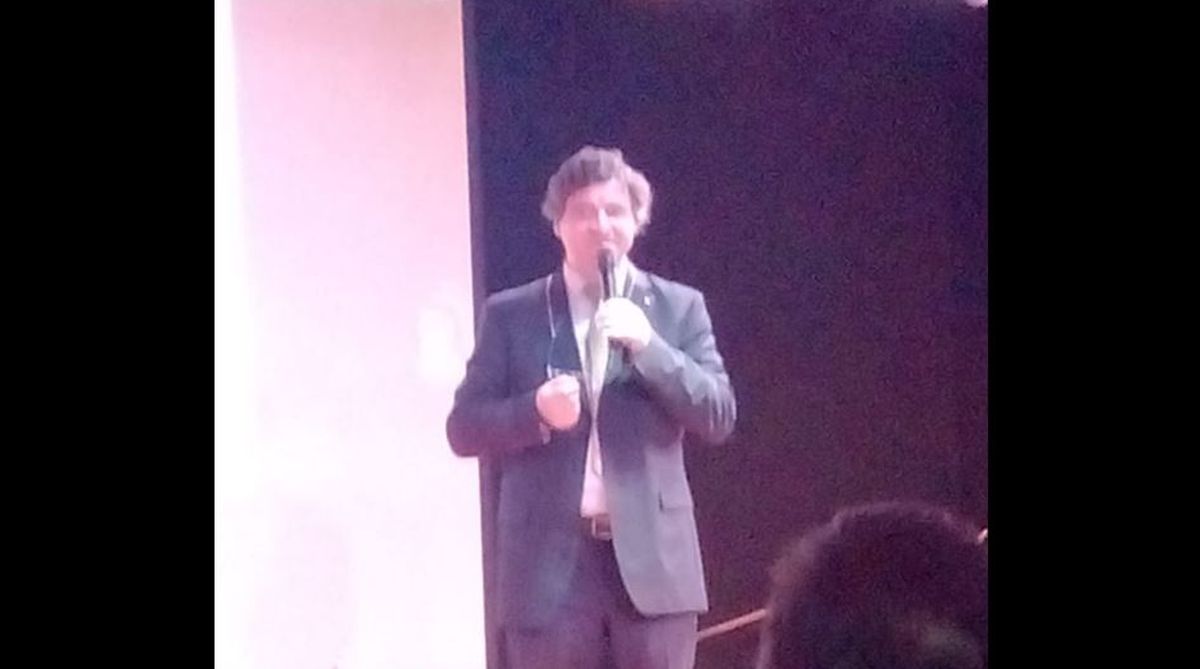Music helps in creating bonds, managing crises: Maestro Wirth
Prof Wirth is also the president and artistic director of the Vienna Boys’ Choir and founder of the Wirth Music Academy.
The “Wirth method” approach to teaching music involves the whole body, beyond the mechanisms for breathing and producing tones, up until the fingertips and challenges the brain.

Gerald Wirth conducting a workshop on teaching music in Gurgaon on Monday. (Photo: SNS)
Two-time Grammy Award winner Prof Gerald Wirth on Monday demonstrated at a workshop a new integrative approach to teaching music, especially to children. “Research on brain development has shown that music has no one point or centre in the brain. For music all parts of the brain have to be active,” said Prof Wirth while elaborating upon his teaching technique that helps children learn in a “fun way” the fundamentals of music and realise their potential.
“There is no child that is not musical. Everybody loves singing one way or the other,” the Austrian musician and composer said, presenting his method before academicians and principals of schools and colleges at a workshop organised by the Music Institute of Chromatics and the Rabindranath World School at this school in Gurgaon.
Advertisement
Teachers, he added, must be aware of themselves and need to constantly listen and react. “Teaching music is not a one-way stream,” said Prof Wirth, who is also the president and artistic director of the Vienna Boys’ Choir and founder of the Wirth Music Academy.
Advertisement
The “Wirth method” approach to teaching music involves the whole body, beyond the mechanisms for breathing and producing tones, up until the fingertips and challenges the brain.
Prof Wirth demonstrated this by involving the audience in a simple musical exercise. Noting that sound has a physical effect, he said an important aspect of rhythm is the feeling for timing. For that combining physical movement, including jumping, with music helps children register it better.
The content of what is learned receives a positive connotation and longer periods of concentration are possible when activities are diverse and involve physical exercise, he explained.
The Wirth method essentially builds a bridge between two fundamental but distinctive methods of fostering musical talent: Subject-oriented, which appeals to intrinsic motivation; and Object-oriented, which is intensive music instruction. Wirth linked the two by including movement and body perception. This strategy allows motivation and learning progress to both remain at the high level.
Music education, Prof Wirth stressed, should start as early in life as possible. In fact, he said, when mothers are pregnant, they should expose the unborn child to music and then continue to sing after the child is born. “From very early on, music becomes part of a child’s life,” he said.
The other aspect of learning music, Prof Wirth said, was group singing. “It is more important to do music in a group than alone,” he said while acknowledging that at a very advanced level, it often becomes essential to practise alone. Group learning brings more enjoyment to the students and their skills improve faster, he added.
Musical education along the Wirth method imparts in a child a life-long passion for music. The quality and control of the voice improve while inculcating a rhythmical feeling. At the same time, music ensures an overall development of the child, improving the non-verbal IQ and concentration while assuring social competence.
“It is not difficult to teach music, only how,” Prof Wirth concluded.
Advertisement